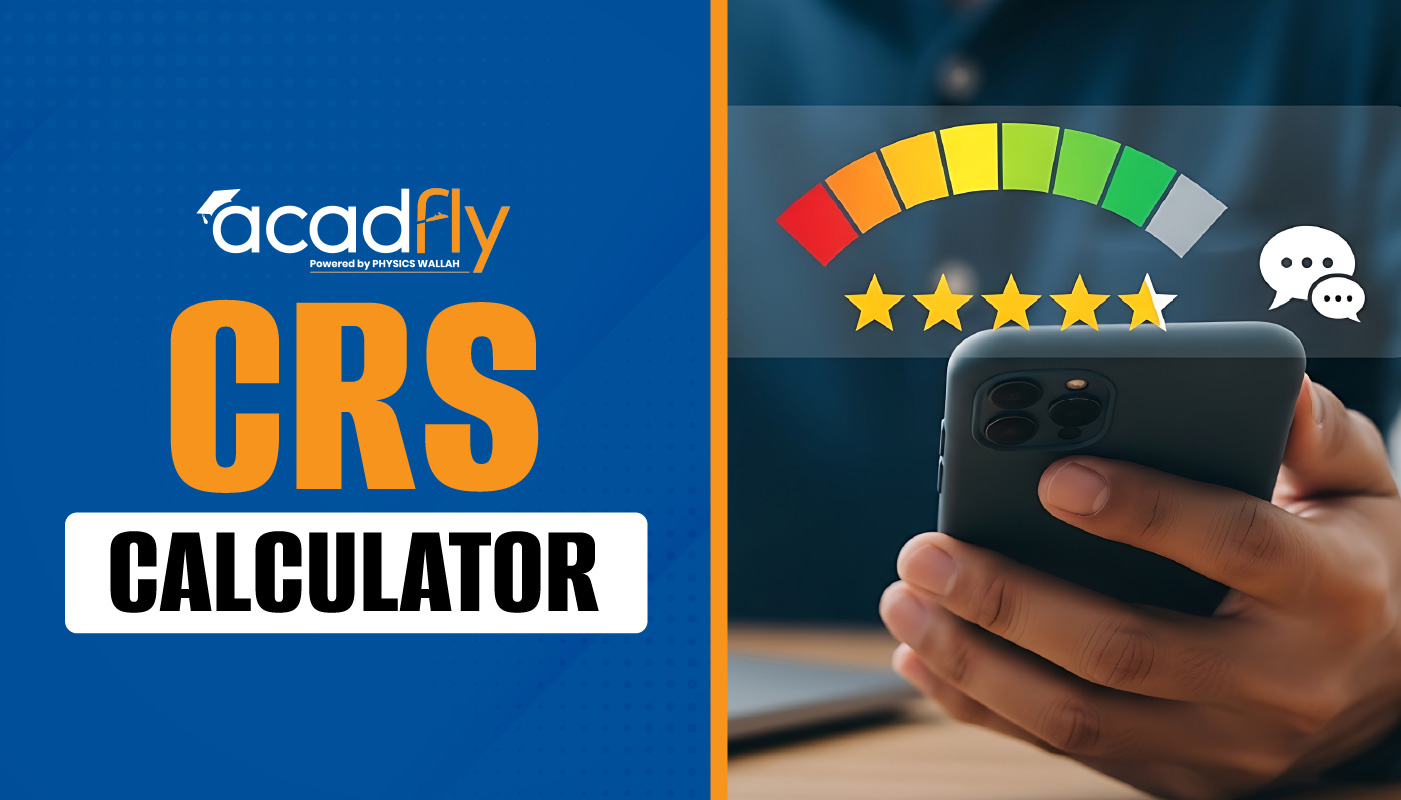
Tenses in English: Imagine describing your daily routine. You say, "I brush my teeth, take a shower, and eat breakfast." These actions use the simple present tense, which talks about regular habits. But if candidates are talking about what they are doing right now, they might say, "I am brushing my teeth and getting ready." This shows how different tenses help us express the timing of actions clearly in English.
English grammar, which is the foundation of the language, depends on tenses. Whether something is happening now, has already happened, or will happen in the future, tenses help us understand when it happens. They give our sentences structure and meaning.
If candidates are new to learning English or just want to refresh their grammar knowledge, understanding the 12 tenses in English is one of the most important steps. These tenses help you speak and write, share your thoughts in the correct time frame, and avoid confusion. The section below highlights each of the 12 English tenses with simple explanations, examples, and tips to use them confidently in everyday conversations, writing, and more.
Tenses in English
Tenses are grammatical tools that help us express when an action occurs, whether in the past, present, or future. They form the backbone of sentence structure and convey the timing and sometimes the state or progression of an event. The English language has three primary tenses, which include present, past, and future. Each has four aspects, i.e., simple, continuous, perfect, and perfect continuous, forming a total of 12 tenses.
Tenses are important because:
-
They bring clarity and context to communication.
-
They distinguish between completed, ongoing, and future actions.
-
They help structure both written and spoken English logically.
12 Types of Tenses in English Grammar
English has 12 tenses. We use them to talk about things that happen now, in the past, or in the future. Each time has 4 forms, i.e., simple, continuous, perfect, and perfect continuous. These tenses help candidates say exactly when something happened or is happening. Below are the types of tenses in English:
| Types of Tenses | ||
|---|---|---|
| Tense Type | Sub-type | Example Sentence |
| Past Tense | Past Indefinite Tense (Simple Past) | I visited London last year. |
| Past Continuous Tense | I was reading a book when he called. | |
| Past Perfect Tense | She had finished her homework before dinner. | |
| Past Perfect Continuous Tense | They had been working for hours before the break. | |
| Present Tense | Present Indefinite Tense (Simple Present) | He plays football every evening. |
| Present Continuous Tense | I am watching a movie right now. | |
| Present Perfect Tense | She has just completed the assignment. | |
| Present Perfect Continuous Tense | We have been studying since morning. | |
| Future Tense | Future Indefinite Tense (Simple Future) | I will travel to Japan next month. |
| Future Continuous Tense | She will be working at 8 PM. | |
| Future Perfect Tense | They will have completed the project by Friday. | |
| Future Perfect Continuous Tense | He will have been studying for 3 hours by then. | |
What is Present Tense?
The present tense refers to actions or situations that are currently happening, are generally true, or occur regularly. It is used when the time of the action is now or when making statements of fact. The present tense is also used to describe habits, universal truths, and fixed arrangements.
There are four subtypes of the present tense:
1. Simple Present Tense
Structure: Subject + base form of the verb (s/es for third-person singular)
Usage:
-
General truths and facts: "The Earth orbits the Sun."
-
Habits and routines: "He drinks coffee every morning."
-
Scheduled events: "The train leaves at 9 AM."
Examples:
-
I walk to school.
-
She works at a bank.
2. Present Continuous Tense
Structure: Subject + am/is/are + verb-ing
Usage:
-
Actions happening right now: "She is studying."
-
Temporary situations: "They are living in Delhi for a month."
-
Planned future events: "We are meeting them tomorrow."
Examples:
-
I am eating lunch.
-
They are watching a movie.
3. Present Perfect Tense
Structure: Subject + has/have + past participle (V3)
Usage:
-
Actions completed recently with present relevance: "I have finished my homework."
-
Life experiences: "She has visited London."
-
Unspecified time: "We have seen that movie."
Examples:
-
He has gone to the market.
-
We have completed the project.
4. Present Perfect Continuous Tense
Structure: Subject + has/have been + verb-ing
Usage:
-
Actions started in the past and continue: "I have been reading since morning."
-
Emphasis on duration: "They have been working for 3 hours."
Examples:
-
She has been singing for an hour.
-
We have been waiting since 9 AM.
What is Past Tense?
The past tense in English grammar refers to actions or situations that took place in the past. It is used to express activities that have already happened, whether a moment ago or many years ago. Mastering the past tense is important for telling stories, describing past experiences, and reporting events accurately.
There are four subtypes of the past tense:
1. Simple Past Tense
Structure: Subject + past form of the verb (V2)
Usage:
-
To describe completed actions in the past: I visited the museum.
-
Past habits: She walked to school every day.
-
Sequential past events: He entered the room, sat down, and opened his book.
Examples:
-
We watched a movie last night.
-
They played football on Sunday.
2. Past Continuous Tense
Structure: Subject + was/were + verb-ing
Usage:
-
To describe actions that were happening at a specific time in the past: I was reading at 8 PM.
-
For two simultaneous past actions: She was cooking while he was watching TV.
-
When one past action was interrupted by another: I was sleeping when the phone rang.
Examples:
-
They were studying during the storm.
-
He was writing an email when his laptop crashed.
3. Past Perfect Tense
Structure: Subject + had + past participle (V3)
Usage:
-
To express an action that was completed before another past event: She had left before the meeting started.
-
For reported speech: He said he had finished the task.
Examples:
-
I had eaten breakfast before going to work.
-
They had already left when we arrived.
4. Past Perfect Continuous Tense
Structure: Subject + had been + verb-ing
Usage:
-
To show an action that started in the past and continued up until another point in the past: He had been working for hours before he took a break
-
Highlights the duration of a past activity: They had been studying since morning.
Examples:
-
She had been practicing the piano for three years before her first concert.
-
We had been driving for five hours before reaching the hotel.
What is Future Tense?
The future tense in English refers to actions or events that will occur after the present moment. It helps express planned activities, predictions, promises, intentions, assumptions, and expectations. Like the present and past tenses, the future tense also has four subtypes.
1. Simple Future Tense
Structure: Subject + will/shall + base form of the verb
Usage:
To express a sudden decision: I will call him now.
Predictions based on opinions or beliefs: It will rain tomorrow.
Promises or offers: We will help you with your luggage.
Future facts: The sun will rise at 6:00 AM.
Examples:
She will bake a cake tonight.
They will attend the seminar next week.
2. Future Continuous Tense
Structure: Subject + will be + verb-ing
Usage:
To describe actions in progress at a specific time in the future: I will be studying at 9 PM.
To indicate overlapping future events: She will be cooking while he will be working.
Examples:
He will be traveling during the summer break.
We will be waiting for the guests at 6 PM.
3. Future Perfect Tense
Structure: Subject + will have + past participle (V3)
Usage:
-
To describe actions that will be completed before a specific time or event in the future: They will have finished the exam by 11 AM.
-
To indicate the result of a future action: By the end of the week, I will have written five chapters.
Examples:
-
She will have left by the time you arrive.
-
We will have completed the project by Friday.
4. Future Perfect Continuous Tense
Structure: Subject + will have been + verb-ing
Usage:
-
To indicate actions that will be ongoing up until a point in the future: By next month, I will have been working here for two years.
-
Higlight the duration of a future action: They will have been studying for six hours.
Examples:
-
He will have been waiting for over an hour.
-
The team will have been practicing for three weeks before the tournament.
Tense Chart
Check the below inforgraphic to understand the types of tenses:
Examples of Tenses
The table below contains examples of all 12 English tenses. These examples will help candidates to understand how each tense is used in context. Each sentence is structured to clearly explain tense, providing a practical model for speaking and writing.
|
Examples of Tenses |
|
|---|---|
|
Tense |
Example |
|
Present Simple |
I teach English. |
|
Present Continuous |
I am teaching an online class. |
|
Present Perfect |
I have taught 100 students. |
|
Present Perfect Continuous |
I have been teaching for five years. |
|
Past Simple |
I taught French last year. |
|
Past Continuous |
I was teaching when the bell rang. |
|
Past Perfect |
I had taught two classes before lunch. |
|
Past Perfect Continuous |
I had been teaching all morning. |
|
Future Simple |
I will teach next semester. |
|
Future Continuous |
I will be teaching at 10 AM tomorrow. |
|
Future Perfect |
I will have taught 200 classes by June. |
|
Future Perfect Continuous |
I will have been teaching here for a decade. |
How to Learn 12 Tenses Easily
At first, learning all 12 English tenses may seem overwhelming, but anyone can become proficient with the correct techniques. The points below offer practical methods and simple tips to help candidates remember, understand, and apply each tense in real-life speaking and writing situations.
Use Visual Charts: To view all 12 tenses in one location, make easy tables or diagrams.
Practice Daily Sentences: Each day, write or speak one sentence in each tense.
Watch English Content: Watch movies, shows, or YouTube videos in English to observe tense usage.
Use Grammar Apps: Use free apps like Duolingo, Quizlet, or Grammarly to improve learning.
Write Journal Entries: Maintain a daily journal where you try to use multiple tenses in one entry.
Tenses Exercises
1. Present Tenses
Present Simple
She always ___ (arrive) on time. [arrive/arrives]
They ___ (go) to school by bus every day. [go/goes]
Present Continuous
Right now, he ___ (write) a report. [is writing/writes]
I ___ (cook) dinner at the moment. [am cooking/cooks]
Present Perfect
I ___ (finish) the book already. [have finished/finished]
They ___ (visit) the museum twice this year.[have visited/visited]
Present Perfect Continuous
She ___ (study) English for two years. [has been studying/had been studying]
We ___ (live) here since January.[have been living/are living]
2. Past Tenses
Past Simple
He ___ (eat) lunch at 1 PM. [ate/eaten]
They ___ (travel) to Goa last summer.[traveled/have traveled]
Past Continuous
I ___ (watch) TV when you called.[was watching / watched]
They ___ (run) when it started to rain.[were running/ran]
Past Perfect
We ___ (leave) before the show started.[had left / left]
He ___ (complete) the assignment before the deadline.[had completed / completed]
Past Perfect Continuous
She ___ (work) for 5 hours before taking a break.[had been working / was working]
They ___ (walk) for miles before finding a taxi.[had been walking / walked]
3. Future Tenses
Future Simple
I ___ (call) you tomorrow.[will call / call]
They ___ (attend) the meeting next week.[will attend/attend]
Future Continuous
This time tomorrow, I ___ (fly) to New York.[will be flying / will fly]
He ___ (be) working all day.[will be / will]
Future Perfect
By next year, she ___ (graduate).[will have graduated / will graduate]
We ___ (complete) the task by 8 PM. [will have completed / complete]
Future Perfect Continuous
By December, I ___ (work) here for 3 years.[will have been working / will be working]
They ___ (study) all day by the time we arrive.[will have been studying / will study]
12 Tenses in English FAQs
What are the 12 tenses in English?
Do all 12 tenses get used regularly?
How can I remember all 12 tenses easily?
Are there tricks to mastering tenses faster?









